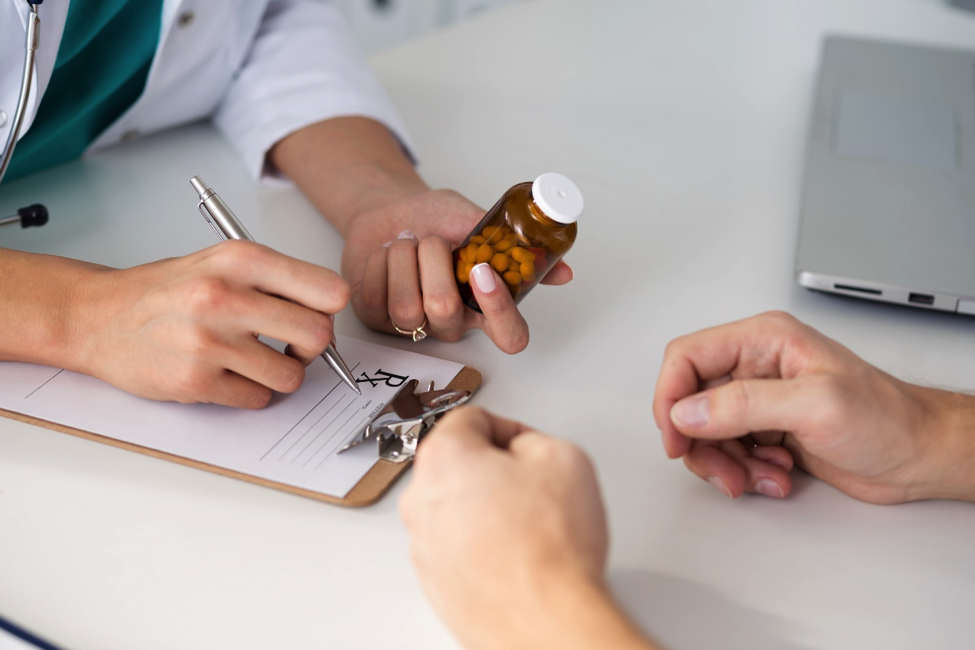
As of 2021, the United States Food and Drug Administration has approved only three medications for the treatment of opioid addiction: methadone, Suboxone and Vivitrol. Two of these medications — Suboxone and Vivitrol — are relatively new drugs that have demonstrated remarkable effectiveness when administered in tandem with intensive recovery treatment.
Suboxone and Vivitrol both contain drugs called naltrexone and naloxone, which are opioid antagonists. These agents attach to the brain’s opioid receptors and prevent opioid drugs from generating an intoxicating effect.
However, though they are both opioid use disorder treatments, there are distinct differences between the two medications. Here is what you should know about Suboxone and Vivitrol.
Suboxone: A Step Towards Sobriety
A large-scale study of the efficacy of Suboxone found highly encouraging results. When used under sometimes-minimal supervision of an addiction specialist, medication-assisted treatment with Suboxone reduced opioid misuse in nearly 50% of study participants for the duration of a three-month program. When the use of Suboxone ceased, the success rate fell to under 9%.
However, the results were superior for people struggling with prescription opioid addiction – outcomes for people using illicit opioids were inconclusive.
In addition to naloxone, Suboxone is formulated with a drug called buprenorphine. Buprenorphine is classified as a partial opioid agonist. The addition of buprenorphine means that the drug creates a mild euphoric sensation, though the potential for abuse is extremely low. Naloxone helps people struggling with dependency tolerate withdrawal symptoms more successfully. If Suboxone were to be taken in a nonprescribed manner — such as crushing and snorting — the naloxone would prevent the opioids from binding to the brain’s opioid receptors.
Suboxone is administered as a sublingual film. A sublingual film is a strip placed under the tongue and allowed to dissolve. The appropriate dosage amounts vary between patients, but the medication is typically taken at least semiweekly. Generic versions of Suboxone are available in pill form.
Suboxone is not currently approved for treatment for addiction to nonopioid substances, like alcohol, cocaine or methamphetamine.
Vivitrol: A Treatment for Alcohol Use Disorders
Vivitrol is an extended-release formulation of a drug called naltrexone. Naltrexone inhibits the euphoric sensation caused by opioids and alcohol consumption. It is not a controlled substance.
While Vivitrol is often prescribed for opioid use disorder, it is also an effective treatment for alcohol addiction. When combined with therapeutic intervention, Vivitrol can help people dramatically reduce alcohol consumption.
A 2017 study has indicated that once-monthly Vivitrol could be as effective in the short term as Suboxone, which can require daily doses. Moreover, Vivitrol might help people maintain sobriety for short periods even after the medication has stopped being administered. Preliminary research has indicated that people experienced reduced cravings and urges to reuse 60 days after their final dose.
Unlike Suboxone, Vivitrol does not contain a partial opioid agonist, so no mild euphoric sensation accompanies its use. While this eliminates the possibility of abuse, Vivitrol treatment for opioid misuse must begin after detoxification. Will naltrexone stop alcohol cravings? Yes, Vivitrol (naltrexone) is often used to help reduce alcohol cravings as well. Vivitrol is administered as a once-monthly injection.
Vivitrol is administered as a once-monthly injection.
Vivitrol and Suboxone Treatment at The Raleigh House
Whether Vivitrol or Suboxone treatment is right for your long-term sobriety will depend upon numerous factors. Though both medications have achieved high success rates, it’s important to consider your circumstances before deciding which treatment is right for you. The addiction specialists at The Raleigh House will help you determine the most effective solutions after providing an exhaustive evaluation of your substance misuse patterns, co-occurring disorders, and the type of substances you use. If necessary, our addiction intervention services can assist in guiding you or a loved one through the process of seeking the help needed to overcome addiction.
If you have reservations about medication-assisted opioid treatment, our team is ready to listen. The Raleigh House offers dedicated support to clients addressing drug use disorders and employs the latest science-backed interventions to assure positive outcomes. The treatment specialists at The Raleigh House help diverse clients struggling with substance use disorders discover the best therapeutic protocols for their goals and lifestyles. To learn whether medication-assisted treatment could be right for your sobriety journey, please contact the helpful team at The Raleigh House to initiate the intake process.
